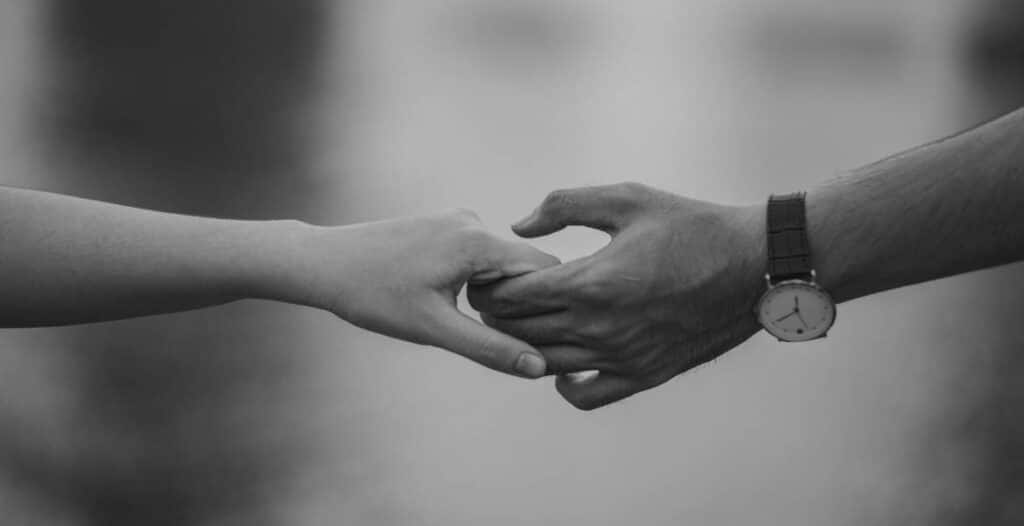How to say I Love You in Bangladesh in the Bengali Language and Culture
Written by Md Sagor Hossen, a native resident of Bangladesh.
Being able to say “I Love You” to someone who is very special is as difficult as staying home while other friends are playing cricket outside. I am talking about the situation of love in Bangladesh where it is different from the western countries.
Everybody who, from teenagers to older people, wants to express love to others simply say, (Ami Tomake Valobashi, I love You). On the other hand, the receiver says,
(Amio Tomake Valobashi, I love you too). That’s it, and it is easy as you like, isn’t it? If you are from outside Bangladesh, you will think that it is indeed very easy but the case is totally different.
In Bangladesh, you will not find many people who express their love saying (Ami Tomake Valobashi, I love you) to others except the younger generation lovers. While there is a deep love for each other within a family, friends, or neighbors, they don’t express that by saying
(Ami Tomake Valobashi, I love you). Love comes automatically or it can be expressed by showing care and other ways as necessary.
We’ll begin by looking at how the younger generation express love in Bangladesh, then we’ll take a closer look at the more traditional system.
A Reminder
Please read all of the articles in this Love Series with an open mind. These pieces are written by someone intimately familiar with the local culture, a culture which is unique from the one you live in.
It is possible you will strongly disagree with some of the practices. In this case, learn from the culture, and try to look for some small token of the culture you can appreciate.
The Younger, Modernized Generation of Love in Bangladesh

The young generation is super-fast in terms of making and breaking relations nowadays, and you can say that these boys and girls have started to follow the culture of the United States or the European countries. Especially the teenagers, they are not afraid of saying “I love you” to anybody.
I used the word “afraid” here as this can reveal the Bengali culture in terms of an Islamic country. Because, as a boy or girl from an Islamic family, they can’t even talk with each other if there is no emergency, let alone saying (Ami Tomake Valobashi, I love you).
Influence From Western Countries
But, who cares? The influence of western countries has changed the situation dramatically. Boys and girls are now talking, gossiping, hugging, making relations, breaking them, and even living together without marrying. These were not possible to think and do even a decade ago. The scenario is changing and changing rapidly.
Talking and gossiping for girls and boys is very simple now in every part of Bangladesh. In big cities, it is becoming difficult to find people who are eager to follow the Islamic rules perfectly in terms of living day to day life which is a threat to the traditional Bengali and Islamic culture.
If you are not from here, you may say that this change is a good sign, but some Bangladeshi believe strongly in the traditional Bengali and Islamic traditions. Modernization is recognized as important and is supported by Islam, but there is a belief by many that the rules and regulations must be followed.
Courtship
Let’s now talk about how a couple starts a relation and how the relationship goes further. When a boy falls in love with a girl, he is sure to spend a long period of time to receive a favorable response from her. Frequently, the boy and the girl meet in a school, college or university. In Bangladesh, most of the time (9 out of 10) a boy needs to impress a girl by doing whatever he can.
A boy can attract a girl by frequently surrounding her, watching her, shaking her hand, using a friend to convey his feelings, or being near her house to impress her and her family.
The Introduction
Most important is the proposal, which is usually sent through a close friend of hers. This is probably the most interesting part of this whole process to make the girl fall in love with him. Because most of the boys of Bangladesh can’t say (Ami Tomake Valobashi, I love you) directly to the girl whom he loves due to shyness, he uses a friend as an intermediary.
Of course, we find exceptions everywhere and there are some boys who have no shyness or hesitation to express their minds to others. They say frankly, (Ami Tomake Valobashi, I Love You), regardless of what the girl is thinking.
From the girl’s point of view, she enjoys all those things done by the boy, but the harsh truth is that most of the time, she does not feel favorable enough towards the boy in terms of making a relation. This seems to be natural for girls across all the countries. When something comes very easily and automatically, human beings don’t find any interest in it.
After beginning the relationship, day by day, it becomes easier for the couple to communicate with each other comfortably. They also become open to the idea of traveling and doing whatever they want together. But there is one crucial thing to remember: the couple does not engage in sex until they get married.
Social media platforms have made the process easier for couples. They always chat with each other and stay connected. In terms of dating, I must say that there is no formality here. If one is eager to meet, they will meet up wherever it is convenient, like at a stall (shop), road, or on campus.
Issues with a Love-Based Marriage
But whatever a couple does, it must be kept confidential, especially from their family members who must not know about the relationship. Because they will not allow it from any point of view and will arrange a marriage with another girl or boy. So, that is how difficult it is to be in a relationship in Bangladesh. Still, the number of families is increasing who are allowing their sons and daughters to marry someone whom he/she loves.
To be honest, there are reasons why parents don’t allow love marriage in Bangladesh. One of the most important reasons is that the sustainability of love marriage is questionable. In Bangladesh, it is difficult to find couples who live the rest of the life together after a love marriage. Divorce is regarded as a curse here in Bangladesh and is not allowed in Islamic culture.
The Bengali and the Islamic culture believe in the sustainability of the relationship as husband-wife. Another important thing you need to know about the culture of Bangladesh is that it allows only the marriage between a man and woman. Other relations (in terms of marriage or sex), like man and man or woman and woman, are extremely prohibited and regarded as a crime.
Planning to Be Married
The Families’ Blessing
Coming back to that couple who have fallen in love, if they think that they are going to be happy staying together in the future, they can talk to each other’s family members about it. But, they usually can’t talk with their family members about their marriage because they don’t have that kind of courage. So, they talk to one of their elder brothers or sisters if they have any and have them do everything. If both families are not conservative, it is easy for them to be married.
Before marriage, there are some criteria to be fulfilled by the couple. The family members of the boy want to be sure about the beauty, hair, talking and walking styles, cooking ability, etcetera of the girl and her family background. On the other hand, the family of the girl thinks that the boy is perfect if he has a Government job. In Bangladesh, if you don’t have a Government job, I advise you not to think of marrying a beautiful girl with a good background.
The Dowry
Another important part of marriage in Bangladesh is the dowry. It is extremely prohibited by the law of Bangladesh as of 1980 and is a national crime. It is also prohibited by Islam. However, it was historically a popular practice, and today, many of Bengali’s bridegrooms and their families still insist on taking a dowry. Thus, although it is prohibited, it has become mandatory to give a dowry for the bride’s family. If all these criteria are fulfilled by the couple, then there comes the matter of arranging the marriage following the religious rules and regulations.
The Marriage Ceremony
A marriage ceremony becomes a huge event for the family members of the couple. Everything happens according to the Islamic culture. Usually, there are three phases (3 days) of a marriage ceremony. The first day is called “Gaeya Holud” (use of Curcuma and giving the couple a special bath). On this day, family members of the bride come to the bridegroom’s house to do it, and vice versa for the groom.
The second day is the focal point of the marriage. On this day, the bridegroom along with the family members and relatives goes to the bride’s house as “Borjattri” (the people who go with the bridegroom) to complete the marriage and pick her up forever partner from her “Baperbari” (Father’s house). The rule to complete the marriage is to say “Kobul” (agree with someone or something) to each other.
The third phase is called “Boubhat” (a picnic organized for the newcomer of the bridegroom’s family), where guests and relatives come and enjoy feasting. All these processes may vary for the couples of other religions like Hindus, Buddhists, Christians, etcetera who also live in Bangladesh. That is how our marriage ceremony stands out and starts a new era of love and happiness for the couple.
After Marriage
After the completion of the marriage ceremony, everything depends on how the newly married couple wants to see their future. Marriage anniversaries are typically a simple celebration. Usually, they buy gifts for each other, sometimes travel somewhere, and at the end of the day they simply say, (Ami Tomake Valobashi, I love you), or commit to staying together by saying
(Kokhono Tomar Theke Dure Jabo Na, never go away from you) to each other.
That is it. With the passage of time, they have babies, then they concentrate on their education, and that is what life is all about in Bangladesh. Although it is different from western culture, the people of Bangladesh enjoy their lives, filled with love, affection, happiness, cheers, and everything else that allows the Bangladeshis to enjoy their lives fully.
Traditional System of Love in Bangladesh Before the 2000s

So far you have learned about the modern system of love in Bangladesh and how a relationship stands out by avoiding the rules and regulations of the society in Bangladesh. Now you are going to learn about the traditional system. Bangladesh got its independence in the 1970s, and if we talk about the process of saying “I love you” in the ’80s and ’90s, you will find it very interesting.
Because, at that time, the only way to be connected with someone very special, was to send a handwritten letter which is called (Prem Potra, love letter). The influence of religion was extreme at that time in terms of love or relations without marriage. As a result, it was not easy to say
(Ami Tomake Valobashi, I love you) for any one of the couples to another. So, they used to write a love letter. There were problems with this method that had to be worked around though, as someone had to go physically to the one who was going to receive the
(Prem Potra, love letter), thus it was still risky.
At that time, there were very few couples who were able to marry for love and make the relationship a successful one. I must say, the situation was not favorable for the couples. Most of the families were very conservative, and there was no possibility of even going outside the home for the girls alone. Thus, you can understand how all the love stories used to end without any result. This is what the situation was in Bangladesh. The situation has changed for the couples in Bangladesh, but still, there are restrictions in the society that are considerable in terms of Bangladeshi culture.
If you enjoyed this article, please read the others in the Love Series. All of them are linked there and are a good cultural learning opportunity.
Please share with your friends using the buttons below and sign-up for our newsletter to receive advice straight in your inbox.




